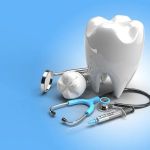How Much Does a Dentist Make in the UK? Understanding the Earnings of Dental Professionals
As a dentist, one of the first questions that often arises is how much you can earn in the field. In the UK, dentistry is a well-respected profession that offers both personal satisfaction and financial reward. However, just how much do dentists actually make in the UK? In this article, we’ll explore the different salary ranges, factors affecting earnings, and the overall financial outlook for dentists working in the UK.
1. Understanding the Average Salary of a Dentist in the UK
In the UK, the salary of a dentist varies greatly depending on a range of factors, such as location, experience, and whether you work in the public sector or privately. According to data from the NHS and other professional bodies, the average salary for a dentist in the UK is between £50,000 and £120,000 per year. However, this can vary greatly depending on the type of practice you work in.
For dentists working within the NHS, the starting salary for a newly qualified dentist is typically around £31,000 to £36,000 per year. However, with more experience and additional responsibilities, this can rise to £50,000 or more. If you’re working in a senior or specialized position within the NHS, your salary could exceed £70,000 annually.
2. Private Practice Dentists and Their Earnings
One of the main differences in earnings between dentists in the UK is whether they work in the NHS or in private practice. While NHS dentists receive a set salary, private practice dentists have more opportunities to increase their earnings through the number of patients they see and the procedures they perform.
In private practice, a dentist's earnings can vary widely depending on the clinic, location, and the dentist's experience. On average, private dentists in the UK can earn between £60,000 and £150,000 annually. Those with established reputations or specialties like cosmetic dentistry may earn even more, with top-end earnings reaching £200,000 or beyond.
3. Factors Affecting Dentist Salaries in the UK
Several factors can influence how much a dentist in the UK can earn. Some of the key factors include:
- Experience: Just like in most professions, a dentist’s salary increases with experience. Newly qualified dentists earn less than their more experienced counterparts, who have had time to build a loyal patient base and increase their skills.
- Location: Dentists in larger cities like London or Manchester tend to earn more than those in smaller towns or rural areas. This is partly due to higher living costs and demand for dental services in urban areas.
- Specializations: Dentists who specialize in areas like orthodontics, periodontics, or cosmetic dentistry can earn significantly higher salaries due to the expertise required in these fields.
- Private vs. NHS: Dentists in private practice generally earn more than those working in the NHS, as private practices offer the opportunity to set their own rates and see more patients.
4. How the NHS System Impacts Dentist Salaries
The NHS provides dental services to the public, and NHS dentists are paid a fixed salary based on the number of patients they see and the procedures they perform. While the NHS system offers job security, it typically pays less than private practice. NHS dentists in the UK can work on a full-time or part-time basis and may also earn additional income through private work if they choose to offer treatments outside the NHS framework.
For those interested in a stable, government-backed career, working as an NHS dentist offers good benefits, including pension plans and paid holidays, though the income may not be as high as in the private sector.
5. Additional Benefits and Job Security for Dentists
In addition to salary, dentists in the UK enjoy a number of benefits that make the profession an attractive career choice. These benefits include:
- Pension Contributions: Dentists in the UK, whether they work in the NHS or privately, have access to generous pension schemes, which provide long-term security.
- Job Security: Working as a dentist, particularly within the NHS, offers job security due to the steady demand for dental care in the UK.
- Work-Life Balance: Many dental practices offer flexible working hours, allowing dentists to maintain a better work-life balance.
6. How to Increase Your Earnings as a Dentist in the UK
If you're a dentist in the UK looking to increase your income, there are several strategies you can implement. One of the most effective ways is by gaining specialized qualifications. Specializing in a high-demand area such as orthodontics or cosmetic dentistry can increase your earning potential, as these areas often command higher fees.
Another way to boost earnings is by joining or establishing a private practice. While this requires initial investment, private practices offer the potential for greater income through higher patient fees and more control over your schedule. Many successful private practitioners also offer specialized services like teeth whitening or veneers that can further increase revenue.
7. What to Expect in Terms of Job Satisfaction
While salary is important, job satisfaction is another crucial factor to consider in a dental career. Many dentists find fulfillment in helping patients maintain good oral health and building long-term relationships with their patients. In the UK, dentists are often well-respected members of the community, and this can lead to a great sense of personal satisfaction. Additionally, the opportunity to specialize and explore different aspects of dentistry, such as cosmetic dentistry or surgery, allows dentists to continue learning and growing throughout their careers.
Overall, dentistry in the UK is a rewarding and well-compensated profession. With salaries that vary depending on experience, location, and practice type, dentists can enjoy both financial stability and job satisfaction. For those interested in pursuing a career in dentistry, it's important to consider both the potential earnings and the personal fulfillment that comes from providing essential health services to the community.







 MGK Dental0.0 (0 review)
MGK Dental0.0 (0 review) Pearl River Family Dentistry5.0 (104 review)
Pearl River Family Dentistry5.0 (104 review) EON Clinics4.0 (24 review)
EON Clinics4.0 (24 review) Dr. Brock F. Tekin, DMD4.0 (169 review)
Dr. Brock F. Tekin, DMD4.0 (169 review) Cooper Family and cosmetic Dentistry4.0 (224 review)
Cooper Family and cosmetic Dentistry4.0 (224 review) Woodlawn Dental Gallery4.0 (537 review)
Woodlawn Dental Gallery4.0 (537 review) The Importance of Oral Health Education During Pregnancy for a Healthy Pregnancy
The Importance of Oral Health Education During Pregnancy for a Healthy Pregnancy Best Tips for Brushing Your Teeth Properly for Healthy Gums: Essential Techniques for Oral Health
Best Tips for Brushing Your Teeth Properly for Healthy Gums: Essential Techniques for Oral Health Why Skipping Dental Checkups Can Lead to Bigger Oral Health Problems
Why Skipping Dental Checkups Can Lead to Bigger Oral Health Problems Advantages of Porcelain Dental Restorations
Advantages of Porcelain Dental Restorations How Can Diabetes Cause Tooth and Gum Problems? Preventing and Managing Oral Health Issues
How Can Diabetes Cause Tooth and Gum Problems? Preventing and Managing Oral Health Issues Healthy Habits for Promoting Good Oral Health and Hygiene: Tips for a Healthy Smile
Healthy Habits for Promoting Good Oral Health and Hygiene: Tips for a Healthy Smile